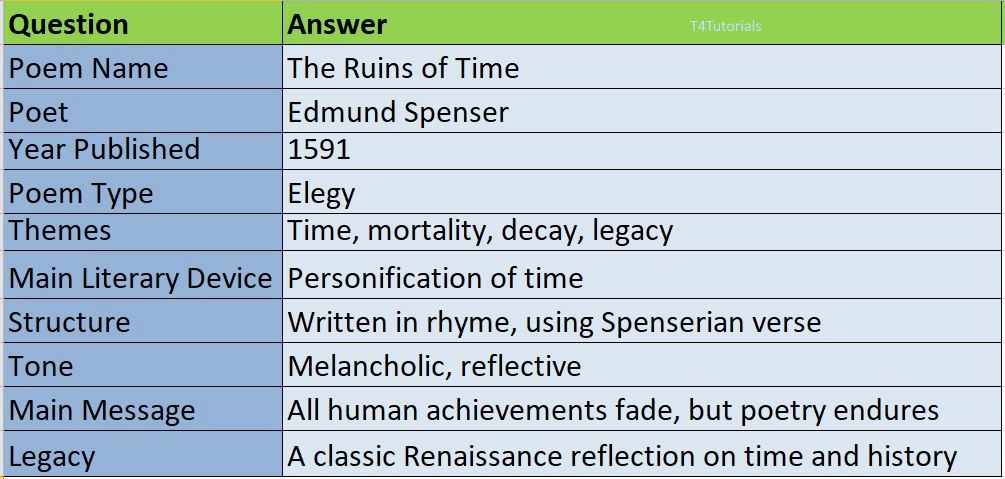Summary:
The Ruins of Time is a poetic lament by Edmund Spenser, included in his collection Complaints (1591). The poem is an elegy that mourns the transience of human achievements, the decay of great civilizations, and the fleeting nature of time. Through the voice of the poet, the poem expresses sorrow over how even the mightiest cities and rulers eventually fade into obscurity, leaving only ruins behind. The poem specifically references historical figures, noble families, and once-glorious cities that have now fallen into decay. It emphasizes that despite human ambition and power, time eventually erases all traces of past greatness. However, Spenser also suggests that poetry and literature can preserve memories beyond physical destruction. The main themes of The Ruins of Time include the inevitability of time, the fleeting nature of human glory, and the power of poetry to immortalize history. It reflects Renaissance humanist concerns with legacy and the impermanence of worldly success.
10
Score: 0
Attempted: 0/10
Subscribe
| Question | Answer |
| Poem Name | The Ruins of Time |
| Poet | Edmund Spenser |
| Year Published | 1591 |
| Poem Type | Elegy |
| Themes | Time, mortality, decay, legacy |
| Main Literary Device | Personification of time |
| Structure | Written in rhyme, using Spenserian verse |
| Tone | Melancholic, reflective |
| Main Message | All human achievements fade, but poetry endures |
| Legacy | A classic Renaissance reflection on time and history |